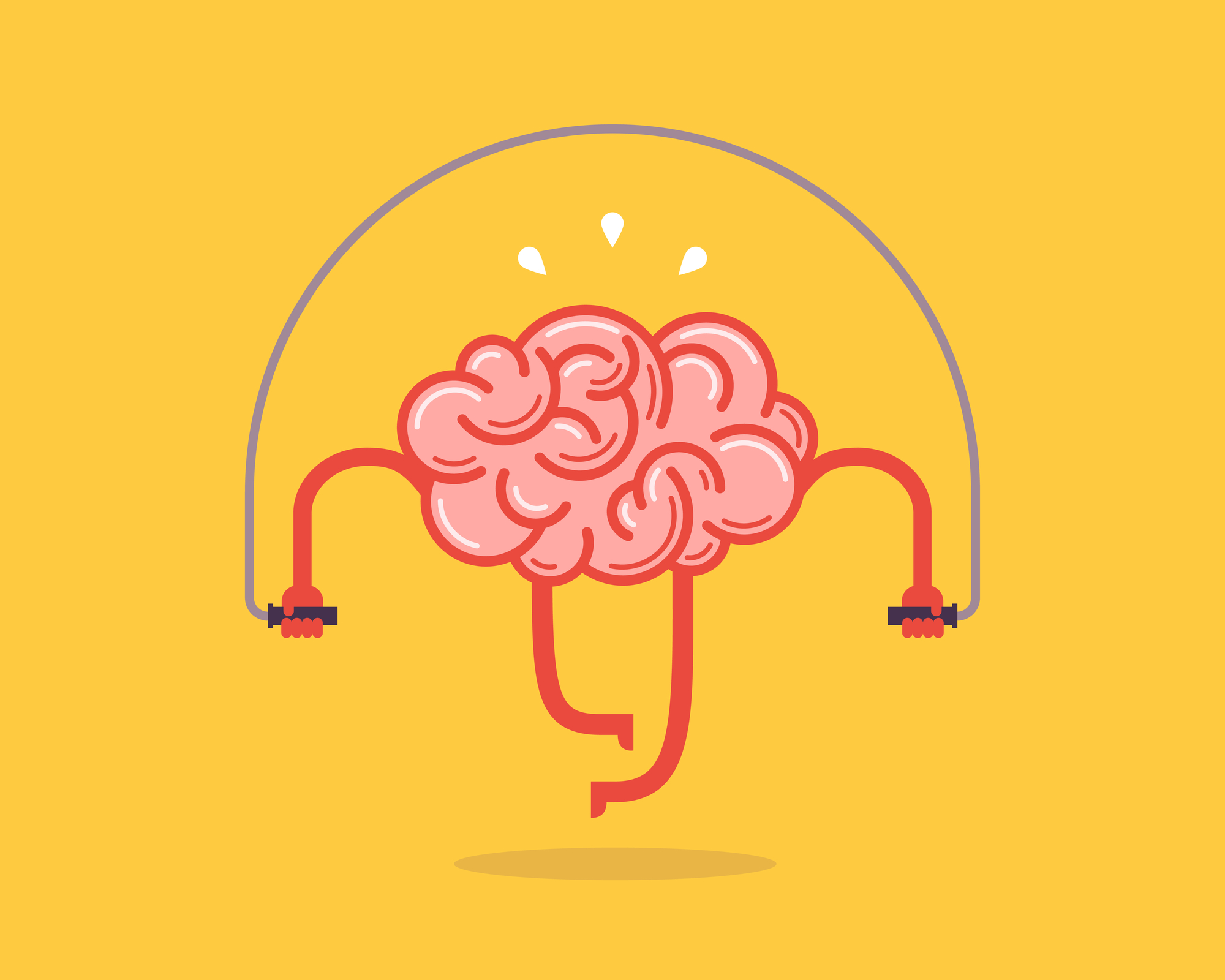Brain-Derived Neurotrophic Factor: The Key to Brain Health and Cognitive Function

Brain-derived neurotrophic factor (BDNF) is a protein that plays a critical role in the development, maintenance, and function of the brain. It belongs to the neurotrophin family of growth factors, which are proteins that support the survival, development, and function of neurons. BDNF is particularly important for long-term memory, learning, and the overall plasticity of the brain. This blog post will delve deep into the science behind BDNF, its role in brain health, factors influencing its levels, and ways to enhance its production.
Understanding BDNF
BDNF is encoded by the BDNF gene and is widely expressed in the central nervous system, particularly in the hippocampus, cortex, and basal forebrain. These areas are crucial for learning, memory, and higher-order thinking. BDNF supports the survival of existing neurons and encourages the growth and differentiation of new neurons and synapses. This protein is essential for synaptic plasticity, the brain’s ability to adapt and change as a result of experience.
BDNF exerts its effects by binding to the TrkB (tropomyosin receptor kinase B) receptor on neurons. This binding activates several intracellular signaling pathways that promote neuron survival, growth, and synaptic plasticity. These pathways include the MAPK/ERK pathway, the PI3K/Akt pathway, and the PLCγ pathway. Through these mechanisms, BDNF plays a vital role in brain function and health.
The Role of BDNF in Brain Health
BDNF is often referred to as the “fertilizer for the brain” because of its role in supporting the growth and differentiation of new neurons and synapses. Its functions extend beyond merely supporting neuronal survival. BDNF is involved in:
- Neurogenesis: The process of generating new neurons, particularly in the hippocampus, a region associated with memory and learning.
- Synaptic Plasticity: Enhancing the strength and efficiency of synapses, which are critical for learning and memory.
- Mood Regulation: BDNF levels have been linked to mood disorders such as depression. Reduced levels of BDNF are often observed in individuals with depression, and treatments that increase BDNF levels, such as antidepressants and physical exercise, can have therapeutic effects.
- Neuroprotection: Protecting neurons from damage and supporting recovery after injury, such as in cases of stroke or traumatic brain injury.
- Cognitive Function: Higher levels of BDNF are associated with improved cognitive function and protection against age-related cognitive decline.
Factors Influencing BDNF Levels
Several factors can influence BDNF levels in the brain. Understanding these factors can help in developing strategies to maintain or enhance BDNF levels for better brain health.
- Exercise
Physical exercise is one of the most potent natural stimulators of BDNF production. Aerobic exercise, in particular, has been shown to increase BDNF levels in the brain, especially in the hippocampus. Regular exercise can enhance cognitive function, improve mood, and reduce the risk of neurodegenerative diseases by promoting BDNF production.
- Diet and Nutrition
Certain dietary components can influence BDNF levels. For example:
- Omega-3 Fatty Acids: Found in fish oil and certain seeds, these fatty acids have been shown to boost BDNF levels and support cognitive function.
- Antioxidants: Foods rich in antioxidants, such as fruits and vegetables, can help protect neurons from oxidative stress, which can degrade BDNF levels.
- Flavonoids: These compounds, found in berries, tea, and chocolate, have been associated with increased BDNF levels and improved cognitive function.
- Sleep
Adequate and quality sleep is essential for maintaining healthy BDNF levels. Sleep deprivation can reduce BDNF expression and impair cognitive functions, highlighting the importance of proper sleep hygiene for brain health.
- Stress
Chronic stress is detrimental to BDNF levels. It can lead to decreased BDNF production, particularly in the hippocampus, and contribute to the development of mood disorders such as depression and anxiety. Managing stress through techniques like mindfulness, meditation, and physical activity can help maintain healthy BDNF levels.
- Age
BDNF levels naturally decline with age, which is associated with a decrease in cognitive function and an increased risk of neurodegenerative diseases. However, lifestyle factors such as exercise, diet, and mental stimulation can help mitigate this decline.
BDNF and Mental Health
BDNF has been extensively studied in the context of mental health, particularly depression and anxiety disorders. Low levels of BDNF have been consistently found in individuals with major depressive disorder (MDD), and there is evidence that BDNF may play a role in the pathophysiology of depression.
- Depression
Research suggests that reduced BDNF levels may contribute to the onset of depression by impairing neurogenesis and synaptic plasticity in brain regions involved in mood regulation, such as the hippocampus. Antidepressant treatments, including selective serotonin reuptake inhibitors (SSRIs) and other medications, have been shown to increase BDNF levels, which correlates with improvements in mood and cognitive function.
Exercise is also a potent antidepressant, partly due to its ability to boost BDNF levels. The increase in BDNF following exercise may help alleviate symptoms of depression by promoting neurogenesis and enhancing synaptic plasticity.
- Anxiety
Like depression, anxiety disorders have also been linked to alterations in BDNF levels. Some studies suggest that low BDNF levels may be associated with increased anxiety symptoms, while interventions that increase BDNF levels can help reduce anxiety.
BDNF and Neurodegenerative Diseases
BDNF has potential implications in the prevention and treatment of neurodegenerative diseases such as Alzheimer’s disease, Parkinson’s disease, and Huntington’s disease. These conditions are characterized by the progressive loss of neurons and synaptic connections, leading to cognitive decline and other neurological symptoms.
- Alzheimer’s Disease
BDNF levels are often reduced in individuals with Alzheimer’s disease, particularly in brain regions associated with memory and cognition. This reduction in BDNF may contribute to the neurodegeneration observed in Alzheimer’s patients. Strategies to increase BDNF levels, such as physical exercise, cognitive training, and certain dietary interventions, are being explored as potential therapeutic approaches to slow down or prevent the progression of the disease.
- Parkinson’s Disease
Parkinson’s disease is characterized by the degeneration of dopaminergic neurons in the brain. BDNF has been shown to support the survival and function of these neurons, suggesting that enhancing BDNF levels could have protective effects. Experimental treatments aimed at increasing BDNF levels are being investigated as potential therapies for Parkinson’s disease.
- Huntington’s Disease
Huntington’s disease is a genetic disorder that leads to the progressive degeneration of neurons in the brain. Research suggests that BDNF may play a role in protecting neurons and supporting their function in individuals with Huntington’s disease. Efforts to increase BDNF levels or enhance its signaling pathways are being explored as potential therapeutic strategies.
Strategies to Enhance BDNF Levels
Given the importance of BDNF in brain health, finding ways to enhance its levels is of great interest. Here are some strategies that have been shown to increase BDNF levels:
- Physical Exercise
Regular aerobic exercise is one of the most effective ways to boost BDNF levels. Activities such as running, cycling, swimming, and even brisk walking can stimulate BDNF production. The intensity and duration of exercise can influence the extent of BDNF increase, with more prolonged and intense activities generally leading to greater increases.
- Healthy Diet
A diet rich in omega-3 fatty acids, antioxidants, and flavonoids can support BDNF production. Foods such as fatty fish, nuts, seeds, berries, and leafy greens are excellent choices. Additionally, avoiding processed foods and excessive sugar intake can help maintain optimal BDNF levels.
- Mental Stimulation
Engaging in mentally stimulating activities such as learning new skills, solving puzzles, reading, and engaging in social interactions can help boost BDNF levels. Mental stimulation promotes neuroplasticity and cognitive resilience, which are supported by healthy BDNF levels.
- Adequate Sleep
Prioritizing quality sleep is crucial for maintaining healthy BDNF levels. Establishing a regular sleep routine, creating a comfortable sleep environment, and managing factors that disrupt sleep can all contribute to better BDNF levels.
- Stress Management
Chronic stress can lower BDNF levels, so finding effective stress management techniques is important. Practices such as mindfulness meditation, yoga, deep breathing exercises, and spending time in nature can help reduce stress and support healthy BDNF production.
- Supplements
Certain supplements have been studied for their potential to increase BDNF levels. For example, curcumin, found in turmeric, has been shown to enhance BDNF production. Omega-3 supplements, such as fish oil, and other compounds like resveratrol and quercetin may also have positive effects on BDNF levels. However, it is essential to consult with a healthcare provider before starting any supplementation.
BDNF in Clinical Research
The significance of BDNF in brain health and disease has led to extensive research aimed at understanding its mechanisms and therapeutic potential. Clinical studies have explored the role of BDNF in various conditions and the impact of different interventions on its levels.
- Exercise and BDNF
Numerous studies have shown that physical exercise can increase BDNF levels. For example, a study published in the Journal of Applied Physiology found that a single session of aerobic exercise increased BDNF levels in the blood of healthy young adults. Another study in the Journal of Neuroscience demonstrated that regular aerobic exercise increased BDNF levels in the hippocampus of older adults, leading to improved memory function.
- Diet and BDNF
Research has also examined the impact of diet on BDNF levels. A study published in the Journal of Nutritional Biochemistry found that a diet rich in omega-3 fatty acids increased BDNF levels in the brain and improved cognitive function in rats. Another study in the Journal of Agricultural and Food Chemistry showed that flavonoid-rich foods, such as blueberries, increased BDNF levels and enhanced cognitive performance in mice.
- Sleep and BDNF
The relationship between sleep and BDNF has been a topic of interest as well. A study in the Journal of Clinical Sleep Medicine found that sleep deprivation reduced BDNF levels in healthy adults, while recovery sleep restored BDNF levels to baseline. This highlights the importance of adequate sleep for maintaining healthy BDNF levels and optimal brain function.
- Stress and BDNF
The detrimental effects of chronic stress on BDNF levels have been well-documented. A study published in the Journal of Neuroscience found that chronic stress reduced BDNF levels in the hippocampus of rats, leading to impaired cognitive function. However, interventions such as exercise and environmental enrichment were shown to mitigate these effects and restore BDNF levels.
Future Directions in BDNF Research
The growing understanding of BDNF’s role in brain health and disease has opened new avenues for research and therapeutic development. Future studies aim to further elucidate the mechanisms underlying BDNF’s effects and explore novel ways to enhance its production and function.
- Gene Therapy
Gene therapy is a promising approach for increasing BDNF levels in the brain. By delivering the BDNF gene directly to target brain regions, researchers hope to promote neurogenesis, synaptic plasticity, and neuroprotection. Preclinical studies have shown encouraging results, and clinical trials are underway to evaluate the safety and efficacy of BDNF gene therapy in humans.
- Pharmacological Interventions
Developing drugs that can enhance BDNF signaling or mimic its effects is another area of active research. Small molecules that activate the TrkB receptor or increase BDNF expression are being investigated as potential treatments for neurodegenerative diseases, depression, and other neurological conditions.
- Personalized Medicine
Advances in genomics and biomarker research are paving the way for personalized medicine approaches to brain health. By identifying individuals with low BDNF levels or genetic variations that affect BDNF function, personalized interventions can be developed to target specific needs and improve outcomes.
Conclusion
Brain-derived neurotrophic factor (BDNF) is a vital protein that plays a key role in brain health, cognitive function, and mental well-being. Its functions in promoting neurogenesis, synaptic plasticity, and neuroprotection make it a critical factor in maintaining a healthy brain throughout life. Understanding the factors that influence BDNF levels and implementing lifestyle strategies to enhance its production can have profound implications for mental health, cognitive performance, and the prevention of neurodegenerative diseases.
As research continues to uncover the complex roles of BDNF in the brain, it is becoming increasingly clear that maintaining optimal BDNF levels is essential for overall brain health. Through regular physical exercise, a healthy diet, adequate sleep, stress management, and mental stimulation, individuals can support their BDNF levels and promote lifelong brain health and cognitive function.
Sources:
- Bathina S, Das UN. Brain-derived neurotrophic factor and its clinical implications. Arch Med Sci. 2015 Dec 10;11(6):1164-78. doi: 10.5114/aoms.2015.56342. Epub 2015 Dec 11. PMID: 26788077; PMCID: PMC4697050.
- Miranda M, Morici JF, Zanoni MB, Bekinschtein P. Brain-Derived Neurotrophic Factor: A Key Molecule for Memory in the Healthy and the Pathological Brain. Front Cell Neurosci. 2019 Aug 7;13:363. doi: 10.3389/fncel.2019.00363. PMID: 31440144; PMCID: PMC6692714.
- Brain-Derived Neurotrophic Factor – an overview | ScienceDirect Topics
“At Dynamic Wellness Solutions, we believe in empowering you with the knowledge and tools to make informed choices that resonate with your unique well-being journey. Our commitment to transparency ensures that you navigate the intricate world of nutrition with clarity, embracing the transformative power of honest and truthful information. Join us on this dynamic path to wellness, where your health and vitality are at the heart of every decision we make together.”


